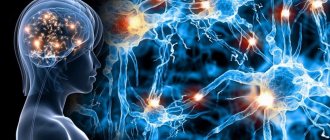What is gastric neurosis? This is a gastric disease that is now becoming more common. It can appear in absolutely each of us. But it is more often observed, nevertheless, in young people against the background of mental and physical stress, some other neurosis, alcohol and nicotine abuse, with diseases of the intestines, stomach, and other organs.
In addition, this disease can be caused by:
• stressful situations;
• emotional stress;
• malnutrition;
• mental overstrain;
• general intoxication.
It leads to disruption of the stomach and general functional disorders, often associated with exhaustion of the nervous system.
Symptoms of gastric neurosis
The picture of this disease is quite varied. The patient is constantly tormented by heaviness in the abdomen, severe heartburn, nausea, which intensifies directly with anxiety, and also does not go away with the transition to a more gentle diet. Pain appears in the epigastric region. They can be sharp as well as dull. Pain may occur when you feel extreme hunger or during breaks between meals. Pain can also appear under the influence of a mental disorder and stress, that is, of a psychosomatic nature.
The patient often has difficulty swallowing. It seems that there is some kind of obstruction in the throat, a lump in the esophagus. Belching occurs, which can even develop into vomiting if the condition is sufficiently advanced. This leads directly to a deterioration in overall well-being and sleep.
Due to swallowing a sufficiently large amount of air, a person may even be tormented by loud burps that last for hours. Flatulence also occurs, which causes a lot of suffering. In addition, many patients with this disease complain of a lump in the throat.
This disease is characterized by a complete lack of relationship between the nature of the pain and the quality of any food intake. For example, sharp pain can occur even after eating low-fat and dietary foods. Or, on the contrary, such sensations may disappear immediately after eating fatty and high-calorie foods.
Stomach hurts from nerves: what to do if your stomach hurts after stress
Stomach hurts from nerves: what to do if your stomach hurts after stress
Each person's nervous system can react differently to external influences. Therefore, in some people, abdominal pain associated with psycho-emotional shock may occur instantly, in others - only after a long period of experiences, and in others - it may not occur at all. The appearance of pain in the abdomen after stress is a signal that you should undergo an examination and, if necessary, take action. After all, chronic psycho-emotional stress can lead to more serious health problems, such as gastritis or stomach ulcers. You should immediately consult a doctor and under no circumstances self-medicate.
The effect of stress on the stomach
How does stomach pain occur after stress? The mechanism of its development is based on a violation of nervous regulation. Stress stimulates excessive production of catecholamines - biologically active substances that enter the blood as a response to physical or psycho-emotional stress. The most famous of them are adrenaline and norepinephrine. These hormones help reduce the production of mucus, which helps protect the stomach from the negative effects of microorganisms, pepsin and hydrochloric acid. By affecting the central nervous system, they can disrupt the motility of the digestive system and impair its blood circulation. Thus, stress can lead to inhibition of peristalsis and activation of aggressive factors (high concentrations of hydrochloric acid, increased production of pepsin, as well as the proliferation of helicobacter pylori bacteria). As a result, damage to the mucous membrane often occurs, inflammation develops, and with it pain appears.
Causes of stomach pain during and after stress
· Pathogenesis factors
Impaired contractility of the smooth muscles of the stomach. Catecholamines, particularly adrenaline, affect motor function and can cause painful spasms.
Increased production of hydrochloric acid . An increase in the acidity level of gastric juice and a simultaneous deterioration in mucus production can lead to damage to the inner lining of the stomach, its inflammation and pain.
Increased activity of helicobacter pylori. They can change the acidity of the environment around them and provoke increased synthesis of hydrochloric acid. Over time, this can lead to the development of chronic gastritis.
· Organic diseases
Nervous gastritis. It involves inflammation of the gastric mucosa. A distinctive sign of pathology against the background of stress is the appearance of pain exclusively at the moment of strong psycho-emotional experiences. Gastritis may be accompanied by increased anxiety, apathy, and severe heartburn. At any other time, the symptoms of the disease usually do not bother the patient.
Stomach ulcer. This is damage to the mucous membrane and the appearance of erosions on it. This condition can be caused by weakened immunity in combination with aggressive factors: actively reproducing helicobacter pylori bacteria, increased concentrations of hydrochloric acid and certain enzymes. Adrenal hormones, which are produced in large quantities during stress, help inhibit regeneration processes, impair blood microcirculation and trophism. Therefore, the ulcer cannot heal on its own. The main symptoms of the pathology are acute pain in the stomach, depression, and with gastric bleeding, which is a complication of a peptic ulcer, the patient often vomits.
· Inorganic diseases
Gastric neurosis (functional dyspepsia). The symptoms are similar to nervous digestive disorders, but there are still some differences. Usually the patient’s general well-being suffers and his appetite worsens. Nausea, heaviness, heartburn, belching, vomiting, painful abdominal cramps and a burning sensation often appear, regardless of whether the person has eaten or not.
Diagnostics
First, the doctor interviews the patient, finds out the accompanying symptoms, palpates the abdomen, during which he determines the tension of the abdominal muscles and clarifies the location of the pain. After this, the specialist usually refers the patient for additional examinations. These include the following:
· fibrogastroduodenoscopy with sampling of gastric juice and tissue biopsy;
· general and biochemical blood test;
· scatology and bacteriological examination of feces;
· Ultrasound of the abdominal organs;
· Helicobacter pylori test;
· radiography.
Very often, the therapist recommends consulting a gastroenterologist and psychotherapist.
Treatment
Physiotherapy. In addition to drug treatment, physiotherapy and spa vacations can help relieve painful spasms and calm the nervous system. The doctor selects physiotherapeutic procedures on an individual basis. Most often prescribed:
· hydrotherapy,
· general massage,
magnetic therapy,
ultraphonophoresis,
· Exercise therapy,
· darsonvalization.
Diet. When preparing your diet and consuming food, you should adhere to the following rules:
· exclude fried foods, fatty and spicy foods, as well as canned food and carbonated drinks;
· refuse products that cause irritation of the mucous membrane (seasonings, salty, sour foods) or provoke fermentation processes;
· give preference to boiled or steamed dishes;
· eat small meals (about 5-6 times a day), the portions themselves should be small;
· do not swallow food in large pieces;
· eat no later than three hours before bedtime.
The diet itself should be balanced, and foods rich in vitamins and minerals.
Therapy. Often, as part of complex therapy, doctors recommend taking medications whose action is aimed at combating the bacterium helicobacter pylori (eradication therapy). The main groups of drugs that can also be prescribed to patients with complaints of stomach pain due to stress include:
· antispasmodics (help relieve pain);
· proton pump inhibitors (aimed at reducing the level of hydrochloric acid);
· Antacids (help neutralize hydrochloric acid and thereby help eliminate heartburn).
However, in addition to symptomatic therapy, it is necessary to eliminate the very cause of the disease. To do this, a specialist may prescribe medications that can help cope with stress. These include sedatives, nootropics, antipsychotics, antidepressants, etc. The choice of a particular one is determined by the nature of the disorder caused (anxiety, depression, vegetative-vascular dystonia, hypochondria, etc.). It is worth noting that most of the medications have a sufficient number of side effects, so medications are prescribed only by a specialist and taken under the strict supervision of a doctor.
_________________________________________________________________________________________
Important
If the doctor has determined that stress has caused any disorders that are mild in nature, it may be advisable to take medications that have a mild and general effect. One of these is the herbal preparation Corvalol PHYTO . This is a combined remedy, the effect of which is due to its calming effect, as well as the ability to reduce spasms. It contains motherwort extract, peppermint oil and ethyl bromizovalerianate. The product is available in both tablets and drops.1
_________________________________________________________________________________________
In order to quickly get rid of abdominal pain caused by stress, you need not only to be examined in a timely manner and follow all the doctor’s instructions. The patient’s approach to the problem and his willingness to change his lifestyle play a big role. Experts recommend that such people relax more, walk in the fresh air, and play sports. Good results in the fight against stress can be achieved by finding a hobby. A favorite activity can distract you from problems and calm you down.
____________________
1 According to the instructions for medical use of the drug Corvalol PHYTO.
Treatment of gastric neurosis: the most effective and proven methods
So, treatment of gastric neurosis is a rather long process, the course of which must be monitored by a doctor. It is necessary to start it as early as possible, because in a very advanced form this pathology leads to much more serious complications and even other diseases - problems with the esophagus and stomach.
The very first advice that can be given to a patient is to visit a competent psychotherapist. He will give all the necessary advice on avoiding emotional stress and worries, and will also prescribe certain physical activities.
Diet therapy plays a certain role. It should be selected depending on the general acidity of the patient’s stomach. The peculiarity of diet therapy is that the transition from dietary food to a regular diet occurs smoothly and also covers a long period of time. You will need to abstain from hot, spicy and salty foods during treatment. It is also necessary to completely exclude from the diet foods that are prone to fairly rapid fermentation.
The patient will benefit from baths with the addition of mint, essential oils, and any medicinal herbs. It is necessary to take herbal infusions that have a strong sedative effect. Such as infusions of oregano, motherwort and valerian. Such plants perfectly normalize the state of mind and help overcome neurosis.
Treatment of irritable bowel syndrome
Is it true that irritable bowel syndrome has no cure? And if so, then why do doctors prescribe different pills? There is already a lot of chemicals in our body!
Unfortunately, there is really no specific treatment for irritable bowel syndrome. You can only fight the symptoms. However, you should consult a gastroenterologist and, if necessary, undergo treatment. After all, unstable stool not only significantly reduces the quality of life, but also leads to overload of the large intestine, increasing the risk of hemorrhoids, anal fissures, fistulas and other proctological diseases.
Selective antispasmodics help relieve pain. However, the problem cannot be solved with pills alone; a set of measures is needed. A necessary condition for good intestinal motility is regular physical activity. Swimming, walking, dancing are useful. A proper diet is also very important. You need to eat regularly and in small portions, excluding fried, spicy, and salty foods. If you are prone to constipation, plant fiber and fermented milk products are most beneficial and jelly and crackers are harmful, but if you have frequent diarrhea, the opposite is true. Finally, learning to manage your emotions can be a big help. Yoga, meditation, psychotherapy, or taking sedative medications prescribed by a neurologist are effective in this regard.
If you still have questions, you can ask them using the Doctis service.









